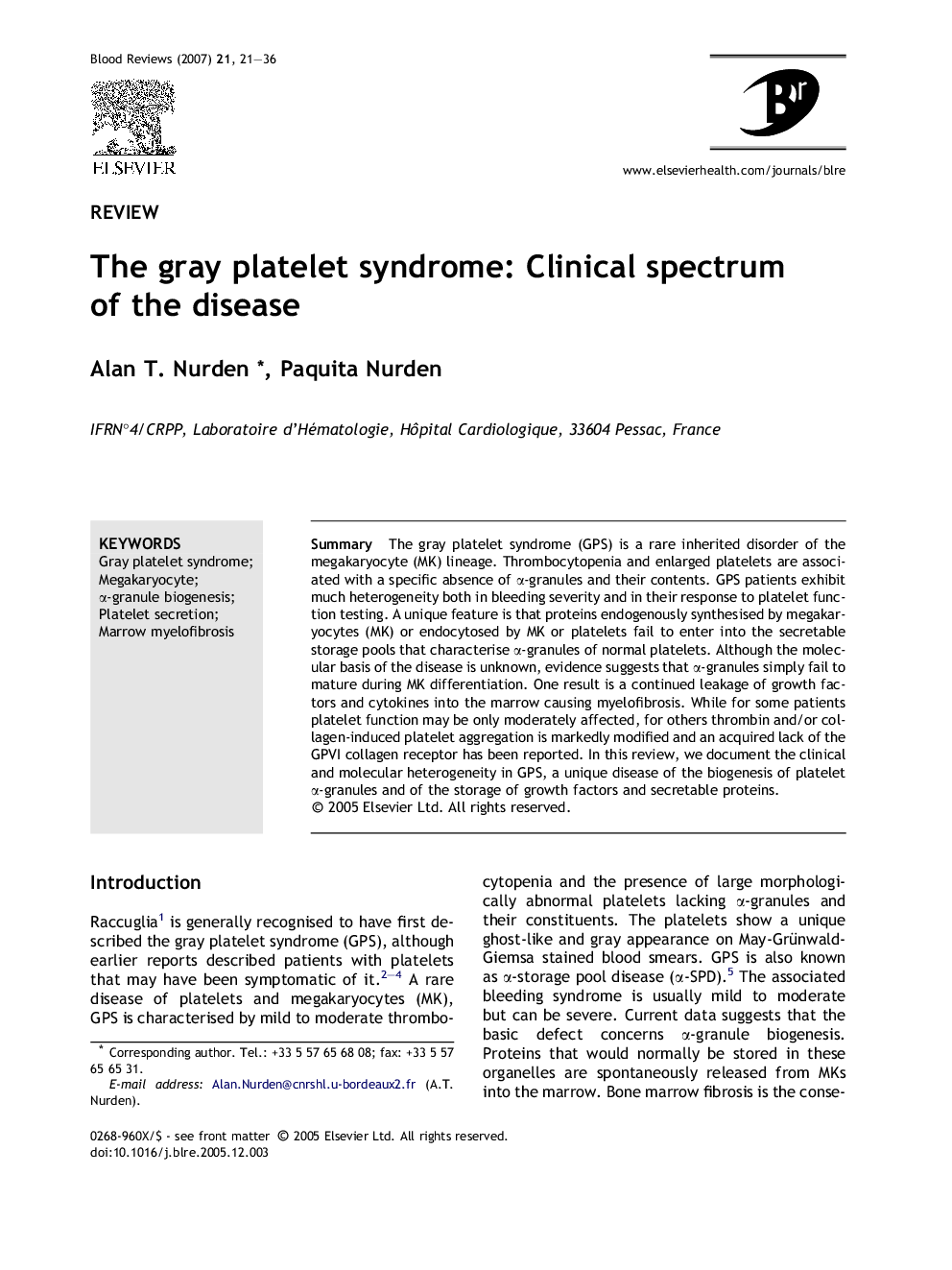| کد مقاله | کد نشریه | سال انتشار | مقاله انگلیسی | نسخه تمام متن |
|---|---|---|---|---|
| 2106607 | 1083541 | 2007 | 16 صفحه PDF | دانلود رایگان |

SummaryThe gray platelet syndrome (GPS) is a rare inherited disorder of the megakaryocyte (MK) lineage. Thrombocytopenia and enlarged platelets are associated with a specific absence of α-granules and their contents. GPS patients exhibit much heterogeneity both in bleeding severity and in their response to platelet function testing. A unique feature is that proteins endogenously synthesised by megakaryocytes (MK) or endocytosed by MK or platelets fail to enter into the secretable storage pools that characterise α-granules of normal platelets. Although the molecular basis of the disease is unknown, evidence suggests that α-granules simply fail to mature during MK differentiation. One result is a continued leakage of growth factors and cytokines into the marrow causing myelofibrosis. While for some patients platelet function may be only moderately affected, for others thrombin and/or collagen-induced platelet aggregation is markedly modified and an acquired lack of the GPVI collagen receptor has been reported. In this review, we document the clinical and molecular heterogeneity in GPS, a unique disease of the biogenesis of platelet α-granules and of the storage of growth factors and secretable proteins.
Journal: Blood Reviews - Volume 21, Issue 1, January 2007, Pages 21–36